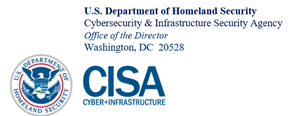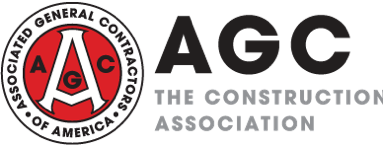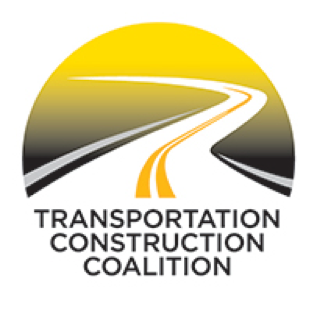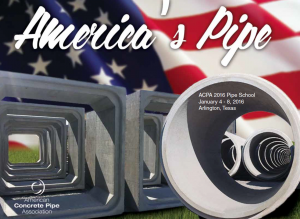ACPA is providing this information to our Concrete Pipe Industry Members with the most up to date information as possible. We have provided several specific updates below by individual categories for ease of reference. Please pay special attention to the AGC information request to “click on the link” to be able to provide your written request to your Legislators in your Area to treat the construction industry and the work it performs as vital and essential to the critical industries that must remain in operation to respond to this pandemic and crisis to come.

First draft of a Summary of the coronavirus-related bill (H.R. 748) that passed the Senate last night by a vote of 96 – 0. Note: The text of the bill runs nearly 900 pages and there are hundreds of provisions. For practical purposes, there is no way to summarize the whole bill (referred to as the “CARES” Act), so this summary includes only those provisions that are likely to be of interest to the ACPA, our Members, and our Industry.

ARTBA is closely monitoring the status of transportation construction projects across the country in light of the Coronavirus (COVID-19) outbreak. ARTBA is consulting with our affiliated chapters and members on a continual basis. Several chapters have shared the status reports they have made to their members, and are allowing ARTBA to excerpt them in this document. The information in the below link also reflects reports made through our Council of State Executives, as well as direct contacts and news stories. Some public agencies have provided updates to ARTBA directly. Several reports note ARTBA’s affiliates have remained in close contact with their respective governors and/or state departments of transportation since this crisis developed.
State-By-State Compilation – Effect of Coronavirus (COVID-19) On Projects
State and local governments have begun to provide more detailed information about expected declines in transportation revenue and changes to current transportation construction programs and lettings as the COVID-19 pandemic continues, according to a review of publicly-available data conducted by the ARTBA.
Impacts of COVID-19 on State & Local Transportation Revenues & Construction Programs

MEMORANDUM ON IDENTIFICATION OF ESSENTIAL CRITICAL INFRASTRUCTURE WORKERS DURING COVID-19 RESPONSE (March 19, 2020)
ACPA Producing Members have recently communicated that there has been enough language in the attached CISA-Guidance on Essential Critical Infrastructure Workers communication to not close any Concrete Pipe facilities in many/most Regions. It is important to note that some Producing Members have written letters based on this language to each of their employees to have if anyone were to question them outside of the facility where States have mandated “Stay at Home Orders” . You can find complete information at www.cisa.gov.
Identification Of Essential Critical Infrastructure Workers Updated 3/28
National Critical Functions Set

URGENT ACTION ALERT
Tell the Trump Administration and Congress to fix Paycheck Protection Program (PPP) loans to save construction jobs. Confusing guidance from the Treasury Department and the Small Business Administration (SBA), and inflexible rules written by Congress threaten the ability of construction businesses to access, hold onto, and use PPP loans to protect construction jobs.
Unless the Trump Administration provides clearer, well-defined guidance about who qualifies for PPP loans, and how exactly these loans can be forgiven, many construction firms will face the difficult decision of returning their loan funds and cutting staff, or keeping the loans and risking a government audit. Similarly, Congress needs to waive the affiliation rules for loan eligibility and provide maximum flexibility for loan forgiveness to help protect construction jobs now and later.
Click here and simply submit the pre-written message as is to President Trump, U.S. Treasury Secretary Mnuchin, Small Business Administrator Carranza and your members of Congress or customize it with personal information on how this issue impacts you and your employer.
At AGC’s urging, the Trump Administration rightly extended its initial deadline for encouraging firms to return their PPP loans from May 7 to May 14 without penalty. However, giving firms more time does little to protect jobs or support construction firm PPP loan borrowers unless the administration also clarifies recent, confusing guidance. Such new guidance should avoid one-size-fits-all industry standards, but rather standards that are flexible for all industries, including the uniqueness of construction that:
- Preserves some levels of current business activity as a safe and essential industry despite significant future market uncertainties;
- Maintains considerable lines of credit for undertaking labor, materials and equipment intensive projects, to obtain and maintain required bonding capacity, and meet day-to-day cash flow needs amid uncertain owner financial means; and
- Faces uncertain legal liabilities that may threaten business operations in the short-term and long-term.
Such reasonable clarity along with revisions to blanket federal audits—which sweep up good actors in with the bad—will help ensure that construction jobs are protected under this program as Congress intended.
Similarly, Congress can amend the Coronavirus Aid, Relief, and Economic Security (CARES) Act to provide reasonable accommodation for the construction industry by waiving the SBA’s complicated affiliation rules for PPP loan eligibility and allowing maximum flexibility in loan forgiveness. Congress should amend the CARES Act PPP loan provisions to allow such loan forgiveness flexibility by:
- Expanding the period for which loan money must be used to more than eight weeks;
- Allowing businesses to choose when to commence that period based on market realities instead of when loan proceeds are received; and
- Revising the confusing forgiveness loan reduction formula in statute to provide additional flexibility for employers.
Taking action is easy. Simply click here (or above) to submit the pre-written message as is or customize it with personal information on how this issue impacts you and your company.

The Transportation Construction Coalition (TCC), of which the ACPA is a Member, sent a letter to the House and Senate on March 19, 2020 with the main focus discussing the need to reauthorize the federal surface transportation programs which would provide additional resources to create and sustain new construction and related industry jobs and tax revenue. In the long-term, the capital assets constructed would enhance economic productivity for many decades to come by providing access to jobs, services, materials and markets.

Registered on SAM Disaster Response Registry can aid your case/our industry’s case for being an “essential business”. It is a voluntary registry of contractors who are willing to perform debris removal, distribution of supplies, reconstruction, and other disaster or emergency relief activities established in accordance with 6 U.S.C. 796, Registry of Disaster Response Contractors. Concrete Pipe and Concrete Box Culvert products, and the elements needed to produce them, would be vital for reconstruction, repairs, etc. of our transportation system, etc. The Registry contains information on contractors who are willing to perform disaster or emergency relief activities within the United States and its outlying areas. A “CAGE” number takes a few days to be issued. You may already be registered, but if not, I’d recommend it. Here are 2 links:


